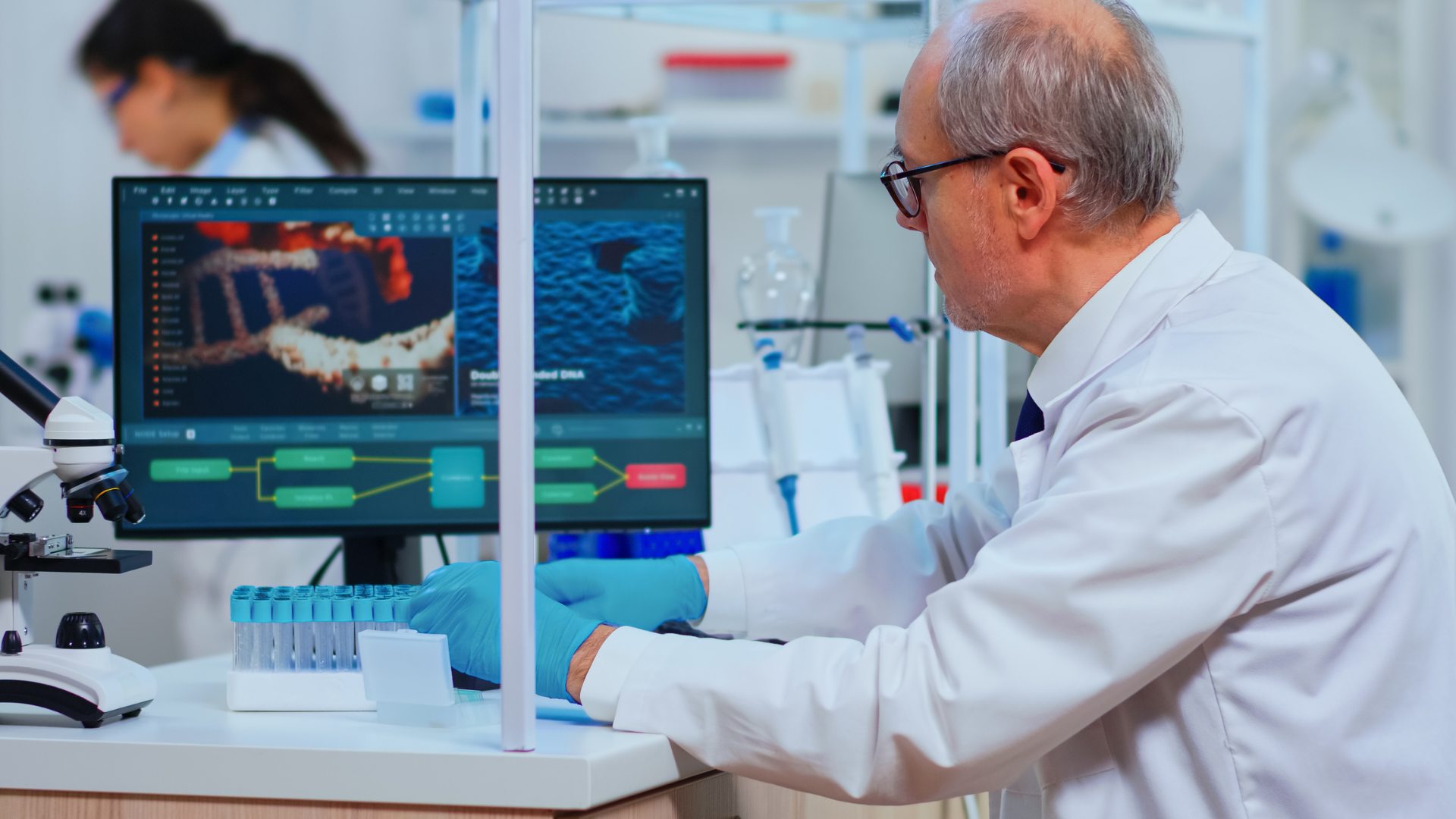Chronic kidney disease (CKD) affects more than 850 million people worldwide, yet it remains one of the most underrecognized and underdiagnosed global health burdens. Despite its prevalence, CKD still lags behind other chronic conditions like diabetes or cardiovascular disease in terms of early detection, prediction of disease progression, and personalized treatment options.
The PICKED (Personalized Medicine in Chronic Kidney Disease) project, funded by the European Union’s Marie Skłodowska-Curie Doctoral Network (MSCA-DN), is addressing this gap by training a new generation of researchers to develop innovative methods for prevention, diagnosis, and therapy. Through an international and interdisciplinary approach, PICKED aims to improve long-term care for millions of people living with kidney disease.
Delta4’s Contribution: Computational Insights at the Heart of Collaboration
A transcript of the video is included at the end of this article.
Within PICKED, Delta4, supported by the FFG Austrian Research Promotion Agency, plays a central role in uncovering the molecular mechanisms driving the transition from acute kidney injury (AKI) to chronic kidney disease (CKD). Using its proprietary computational platform, Hyper-C, and expertise in AI-driven drug repurposing, Delta4 analyzes large-scale biological datasets to model disease progression, identify therapeutic targets, and support the discovery of new or optimized treatment regimens.
“In the PICKED project, Delta4 focuses on analyzing disease processes that arise during the transition from acute kidney failure to chronic kidney disease. The goal is to optimize diagnosis, prognosis, and therapy for patients,”

Dr. Paul Perco
Head of Computational Biology,
Delta4
By combining computational modeling with collaborative validation, Delta4 benefits from access to unpublished data shared within the PICKED network, and works closely with experimental partners who test and verify its computational predictions. This synergy not only enhances scientific rigor but also accelerates the translation of insights into clinical relevance.
The Broader Impact of Collaboration
FFG, the Austrian Research Promotion Agency, recently featured Delta4’s successful participation in the EU-funded PICKED project among its Success Stories. This recognition highlights how collaborations involving strong and efficient partners make large, complex grant initiatives not only possible but manageable. For Delta4 and its partners, projects like PICKED open unique opportunities to:
- Access diverse expertise across Europe’s leading research and clinical institutions,
- Collaborate on translational research that bridges computational models and patient outcomes, and
- Train and mentor emerging scientists, ensuring continuity in personalized medicine innovation.
For Delta4, these collaborations reinforce its position as a trusted partner in computational biology and AI-driven drug discovery, contributing not only to the advancement of kidney health but also to a more sustainable and effective healthcare system.
Looking Ahead
Delta4’s involvement in PICKED exemplifies how data-driven collaboration can accelerate breakthroughs in complex diseases like CKD. As the project progresses, Delta4 continues to strengthen its partnerships across Europe, participating in several additional EU submissions and fostering innovation at the intersection of science, technology, and medicine.
By combining advanced computation with close collaboration, Delta4 is helping to shape a future where personalized medicine is not just possible, but practical. Interested in working with us? Learn more about partnering with Delta4.
About the PICKED Project
PICKED brings together ten leading European institutions from academia, clinical practice, and industry, as well as nine associated partners. Together, they work toward one shared goal: to advance personalized medicine in nephrology by combining expertise from biomedicine, bioinformatics, ethics, and law.
The scientific work is organized into five interconnected work packages (WP):
- WP1 – Early Detection of CKD: Developing and validating biomarker signatures for patients at risk, including those with congenital kidney diseases or acute kidney injury (AKI).
- WP2 – Predicting Disease Progression: Identifying multiparametric protein and peptide markers to improve personalized risk assessment in both adults and children.
- WP3 – Personalized Pharmacotherapy: Using biomarker profiles to predict individual drug responses and support drug repurposing efforts.
- WP4 – Personalized Dialysis: Creating innovative monitoring technologies to adapt dialysis treatments to each patient’s unique metabolism.
- WP5 – Ethical, Legal, and Quality-of-Life Aspects: Exploring social and regulatory frameworks to ensure that personalized medicine is implemented ethically and effectively.
In addition to its scientific mission, PICKED emphasizes structured training. Ten doctoral students are receiving interdisciplinary education that combines lab work, clinical rotations, and industry exposure—helping to bridge the gap between academic research and real-world healthcare innovation.
About the FFG Austrian Research Promotion Agency
Delta4’s participation in the PICKED project has been made possible in part thanks to support from the Austrian Research Promotion Agency (FFG). The FFG is Austria’s national funding agency dedicated to promoting industrial research and development.
As the “one-stop shop” for innovation funding in Austria, the FFG helps bridge the gap between scientific discovery and commercial application, supporting projects that generate new knowledge, products, and services. Their mission encompasses:
- Financing and sharing the risks inherent in research and innovation projects, especially in industry,
- Facilitating international networking and collaboration,
- Supporting career development in science and technology,
- Strengthening the competitiveness of Austrian companies in the global market.
In the context of PICKED, FFG’s backing underscores the importance of national-level support in enabling cross-European collaborations and empowering smaller tech-bio enterprises like Delta4 to advance personalized medicine.
Video Transcript
ENGLISH:
In the PICKED project in particular, Delta4 is focusing on analyzing disease processes that arise during the transition from acute kidney failure to chronic kidney disease. The idea here is to optimize diagnosis, prognosis, and treatment regimens for patients transitioning from acute kidney failure to chronic kidney disease. My name is Paul Perco, and I am head of the Computational Biology team at Delta4.
On the one hand, we have internal development projects, especially in the field of computational drug repositioning, where we try to find new applications for drugs that are already on the market.
We also conduct contract research projects for pharmaceutical and biotech clients, supporting them in their search for new areas of application for drugs. And we are also involved in a number of collaborative research projects as partners with other companies and academic institutions. Delta4 is a techbio company with the goal of optimizing drug development using big data and computer modeling. We are currently involved in two collaborative projects funded by the EU in the context of MSCA Doctoral Networks.
The access to experts that we gain through these European, multinational networks is very important to us. On the one hand, because it provides us with unpublished data developed and generated by collaboration partners. And on the other hand, we then benefit from collaboration partners who experimentally test, validate, and verify our computational predictions, which adds value for us. SMEs are generally very welcome partners in these funding programs, both at the consortium level and in the eyes of the EU.
Both projects involve using data to model disease processes in order to subsequently make more accurate diagnoses and better predict the course of the disease. We will also be participating as a partner in at least six further submissions by the end of the year. Basically, we want to remain state of the art so that we continue to be an attractive partner in such research programs. And as a team, we want to continue to grow organically and implement more collaborative projects and contract research projects in order to ultimately help patients, the healthcare system, and society.
GERMAN:
Speziell im PICKED-Projekt liegt der Fokus der Delta4 auf der Analyse von Krankheitsprozessen, die am Übergang von akutem Nierenversagen zu chronischen Nierenerkrankungen entstehen. Und hier ist die Idee, die Diagnose, Prognose und Therapieregime zu optimieren für PatientInnen am Übergang von akutem Nierenversagen zu chronischen Nierenerkrankungen. Mein Name ist Paul Perco und ich bin Leiter des Computational Biology Teams bei der Delta 4 GmbH. Zum einen haben wir interne Eigenentwicklungsprojekte, speziell im Bereich des Computational Drug Repositionings, wo wir versuchen, für Medikamente, die bereits am Markt sind, neue Anwendungsgebiete zu finden.
Weiters haben wir Auftragsforschungsprojekte für Pharma- und Biotech-KundInnen, die wir unterstützen bei der Suche nach neuen Anwendungsgebieten für Medikamente. Und wir sind auch in einigen Kooperationsforschungsprojekten involviert, als Partner mit anderen Firmen und akademischen Institutionen. Delta4 ist ein TechBio-Unternehmen mit dem Ziel, Medikamentenentwicklung zu optimieren mithilfe von Big Data und Computermodellierung. Derzeit sind wir in zwei Kooperationsprojekten involviert, die von der EU im Kontext der MSCA Doctoral Networks gefördert werden.
Da ist für uns der Zugang zu den ExpertInnen sehr wichtig, die wir in diesen europäischen, multinationalen Netzwerken bekommen. Zum einen, weil es uns Zugang gibt zu noch nicht veröffentlichten Daten, die von KollaborationspartnerInnen entwickelt und generiert werden. Und zum anderen haben wir dann KollaborationspartnerInnen, die unsere Computer-Vorhersagen experimentell testen und validieren und verifizieren, was dann für uns einen Mehrwert bringt. Grundsätzlich sind KMUs sehr gern gesehene Partner in solchen Förderprogrammen, sowohl von Seiten des Konsortiums als auch seitens der EU.
In beiden Projekten geht es darum, daten-unterstützt Krankheitsprozesse zu modellieren, um in weiterer Folge optimiertere Diagnosen zu stellen sowie den Krankheitsverlauf besser vorhersagen zu können. Wir werden auch bis Jahresende wieder bei zumindest sechs weiteren Einreichungen als Partner teilnehmen. Grundsätzlich wollen wir state of the art bleiben, damit wir weiterhin ein attraktiver Partner in solchen Forschungsprogrammen sind. Und als Team wollen wir organisch weiter wachsen und mehr Kollaborationsprojekte und Auftragsforschungsprojekte durchsetzen, um letztendlich den PatientInnen zu helfen, dem Gesundheitssystem und der Gesellschaft.


